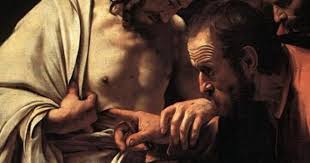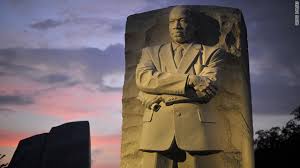 Good Friday
Good Friday Entries in Good Friday (2)
Friday: The Road to Sunday
 Thursday, March 29, 2018 at 06:02PM
Thursday, March 29, 2018 at 06:02PM  As followers of Jesus, we need to embrace Good Friday, which is a little bit like saying we need to embrace torture.
As followers of Jesus, we need to embrace Good Friday, which is a little bit like saying we need to embrace torture.
From that time on Jesus began to explain to his disciples that he must go to Jerusalem and suffer many things at the hands of the elders, chief priests and teachers of the law, and that he must be killed and on the third day be raised to life.
Peter took him aside and began to rebuke him. "Never, Lord!" he said. "This shall never happen to you!"
Jesus turned and said to Peter, "Get behind me, Satan! You are a stumbling block to me; you do not have in mind the things of God, but the things of men."
Then Jesus said to his disciples, "If anyone would come after me, he must deny himself and take up his cross and follow me. For whoever wants to save his life will lose it, but whoever loses his life for me will find it.
Matthew 16: 21 - 25
Good Friday is the day when we remember the crucifixion of Jesus, but there’s more to it than remembering: Jesus calls us to the cross, too. The famous sermon says, "it's Friday, but Sunday's coming!" More properly the point of the story is that Friday is the road to Sunday. There's no Easter Sunday without Good Friday. There is no resurrection without the Cross; and as his followers, there's a Good Friday for all of us.
The very idea of Good Friday causes us concern. The problem is that both his power and wisdom led him to the Cross, a brutal denial of everything he had done before. Those who had seen his power wondered why he seemed powerless at his greatest need. Those who saw his intelligence wondered how someone so smart could miscalculate so badly. Both sides missed what Jesus and his Father were saying: “unless a grain of wheat falls into the ground and dies, it abides alone, but if it dies, it produces many.” (John 12:24) Not just his words: his very life is a parable.
It wasn’t just the people of Jesus’ day who had a problem with the Cross. Even today religious-minded people want miracles and power. In our day intellectually minded people want wisdom and truth. What God offers us all is first the Cross. The earliest believers called the Cross “the wisdom of God and power of God.” (I Corinthians 1: 23 - 24) This is a stumbling block for us to consider today: that both his power and wisdom led him to the Cross. People prefer not to dwell on such things. After all, who respects suffering?
You want to tell a story worth telling? Try this one: things are always darkest just before they go pitch black. And then, in the blackness of the truth--the truth that our own power or smarts are never enough we discover that we need to rely solely on the promise of the Father.
Once you’ve been to the Cross, everything changes: stumbling blocks and foolishness turn into power and wisdom. The Cross changes everything. If something’s pursuing you, then perhaps the event, which will change everything for you, is the Cross. If nothing is changing, maybe you haven’t been to the Cross.
Easter is indeed about the empty tomb. But first it’s about the Cross. Why are we in such a hurry to rush Jesus up to heaven? Is it because the Cross doesn’t fit into our picture of how things ought to be? It didn’t fit into anyone’s picture back then, either. But Friday is the road to Sunday. It was the road for Jesus; it is the road for us.
God promises never to forsake you, but it doesn’t always feel that way, right? Here are two of the phrases Jesus uttered on the Cross: “Why have you forsaken me?” and “Father, into your hands I commend my spirit.” How can those two go together? Even at his death, Jesus showed us how to trust the Father beyond the circumstances. His is the example of Job: “Though he will kill me, he’s still my only hope.” (Job 13: 15) The only safe place is the mercy of God, even if it appears he himself is against you.
Jesus predicted his death and resurrection. It's one thing to predict the future. It's quite another to go to the cross willingly. At least three times Jesus shared his destiny with the disciples. They didn’t understand. More challenging still is the fact that Jesus embraced this destiny by faith. He knew the Father’s promise of resurrection, but death still lay ahead of him. And death was still death, even for Jesus. It was his trust in the Father’s promise that caused him to wager everything he had, his very life. As a man, Jesus modeled how to trust the Father.
Good Friday, 2017
 Friday, April 14, 2017 at 07:03AM
Friday, April 14, 2017 at 07:03AM  Even in suffering and death Jesus is our model. The New Testament accounts of Good Friday are his grace-gift to us, that we might see how a godly man faces injustice, suffering, and the end of life.
Even in suffering and death Jesus is our model. The New Testament accounts of Good Friday are his grace-gift to us, that we might see how a godly man faces injustice, suffering, and the end of life.
Good Friday shows Jesus facing punishment and torture. It does not turn away from the reality of suffering and it reminds us that Jesus, the divine Son of God, was also fully human. He was beaten; he bled. He was whipped; and his flesh opened up. He was stripped naked before others; he felt the shame. He was pierced; he felt the agony. Though weakened and dying from his injuries he spoke to his family, he encouraged those beside him, he cried out to God, and after he was sure is work was finished, then—and only then—did he himself give up his life.
Human suffering is made noble for only one reason: that Jesus, the Son of Man suffered. His holiness forever sanctified all suffering. Jesus did not “taste” human suffering, rather it is we who taste his. Good Friday teaches us that the Son of God wanted no separation between his life and ours. He drank the cup of humanity down to the dregs.
Even in suffering we hear him speak. The Lord used his voice to forgive and to comfort his family. He uses his voice to share his need and discomfort. He uses his voice to connect with one more human soul, the man crucified by his side.
And he used his voice in one final way: Jesus asked God “Why?” and in so doing he gave us permission to do the same. If he can ask God “Why?” so can we. What’s more—just moments later—the same One who felt forsaken and cried out “Why?” then said: “Father, into your hands I commit my spirit.” Jesus moved from asking God why to trusting everything to the Father. In these two statements he taught us a final lesson: even when we do not understand why, our surest choice is to commit ourselves into the loving hands of the Father.”

